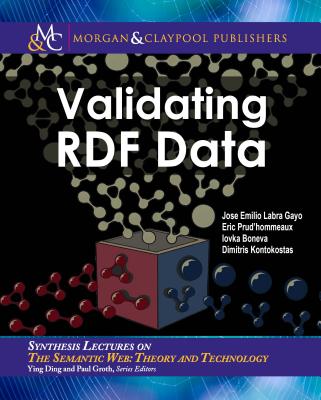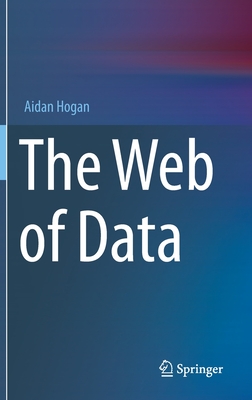Validating Rdf Data
暫譯: 驗證 RDF 數據
Labra Gayo, Jose Emilio, Prud'hommeaux, Eric, Boneva, Iovka
- 出版商: Morgan & Claypool
- 出版日期: 2017-09-29
- 售價: $3,850
- 貴賓價: 9.5 折 $3,658
- 語言: 英文
- 頁數: 328
- 裝訂: Hardcover - also called cloth, retail trade, or trade
- ISBN: 1681733889
- ISBN-13: 9781681733883
海外代購書籍(需單獨結帳)
相關主題
商品描述
RDF and Linked Data have broad applicability across many fields, from aircraft manufacturing to zoology. Requirements for detecting bad data differ across communities, fields, and tasks, but nearly all involve some form of data validation. This book introduces data validation and describes its practical use in day-to-day data exchange.
The Semantic Web offers a bold, new take on how to organize, distribute, index, and share data. Using Web addresses (URIs) as identifiers for data elements enables the construction of distributed databases on a global scale. Like the Web, the Semantic Web is heralded as an information revolution, and also like the Web, it is encumbered by data quality issues. The quality of Semantic Web data is compromised by the lack of resources for data curation, for maintenance, and for developing globally applicable data models.
At the enterprise scale, these problems have conventional solutions. Master data management provides an enterprise-wide vocabulary, while constraint languages capture and enforce data structures. Filling a need long recognized by Semantic Web users, shapes languages provide models and vocabularies for expressing such structural constraints.
This book describes two technologies for RDF validation: Shape Expressions (ShEx) and Shapes Constraint Language (SHACL), the rationales for their designs, a comparison of the two, and some example applications.
商品描述(中文翻譯)
RDF 和 Linked Data 在許多領域中具有廣泛的應用,從飛機製造到動物學。檢測不良數據的需求在不同社群、領域和任務中有所不同,但幾乎所有情況都涉及某種形式的數據驗證。本書介紹了數據驗證並描述其在日常數據交換中的實際應用。
語義網提供了一種大膽的新觀點,關於如何組織、分發、索引和共享數據。使用網絡地址(URI)作為數據元素的標識符,使得在全球範圍內構建分佈式數據庫成為可能。與網絡類似,語義網被譽為信息革命,但同樣也受到數據質量問題的困擾。語義網數據的質量受到數據管理、維護和開發全球適用數據模型資源不足的影響。
在企業規模上,這些問題有傳統的解決方案。主數據管理提供了企業範圍內的詞彙,而約束語言則捕捉並強制執行數據結構。形狀語言滿足了語義網用戶長期以來的需求,提供了表達這些結構約束的模型和詞彙。
本書描述了兩種 RDF 驗證技術:形狀表達式(ShEx)和形狀約束語言(SHACL),它們設計的理由、兩者的比較以及一些示例應用。
作者簡介
作者簡介(中文翻譯)
何塞·埃米利奧·拉布拉·蓋約(Jose Emilio Labra Gayo)是西班牙奧維耶多大學的副教授。他是WESO(Web Semantics Oviedo)研究小組的創始人和主要研究員,該小組與全球多家公司合作,應用語義網技術。為多家公司和公共行政機構開發數據門戶的經驗引發了他對RDF驗證的興趣。他是W3C數據形狀工作組的成員,並參與三個W3C社群小組——Shape Expressions、SHACL和RAX(RDF與XML互操作性),同時也是多語言連結開放數據社群小組最佳實踐的主席。他實現了SHACL和ShEx庫Shaclex,並維護一個線上RDF驗證服務,還撰寫了一本關於語義網的西班牙語入門書籍。































